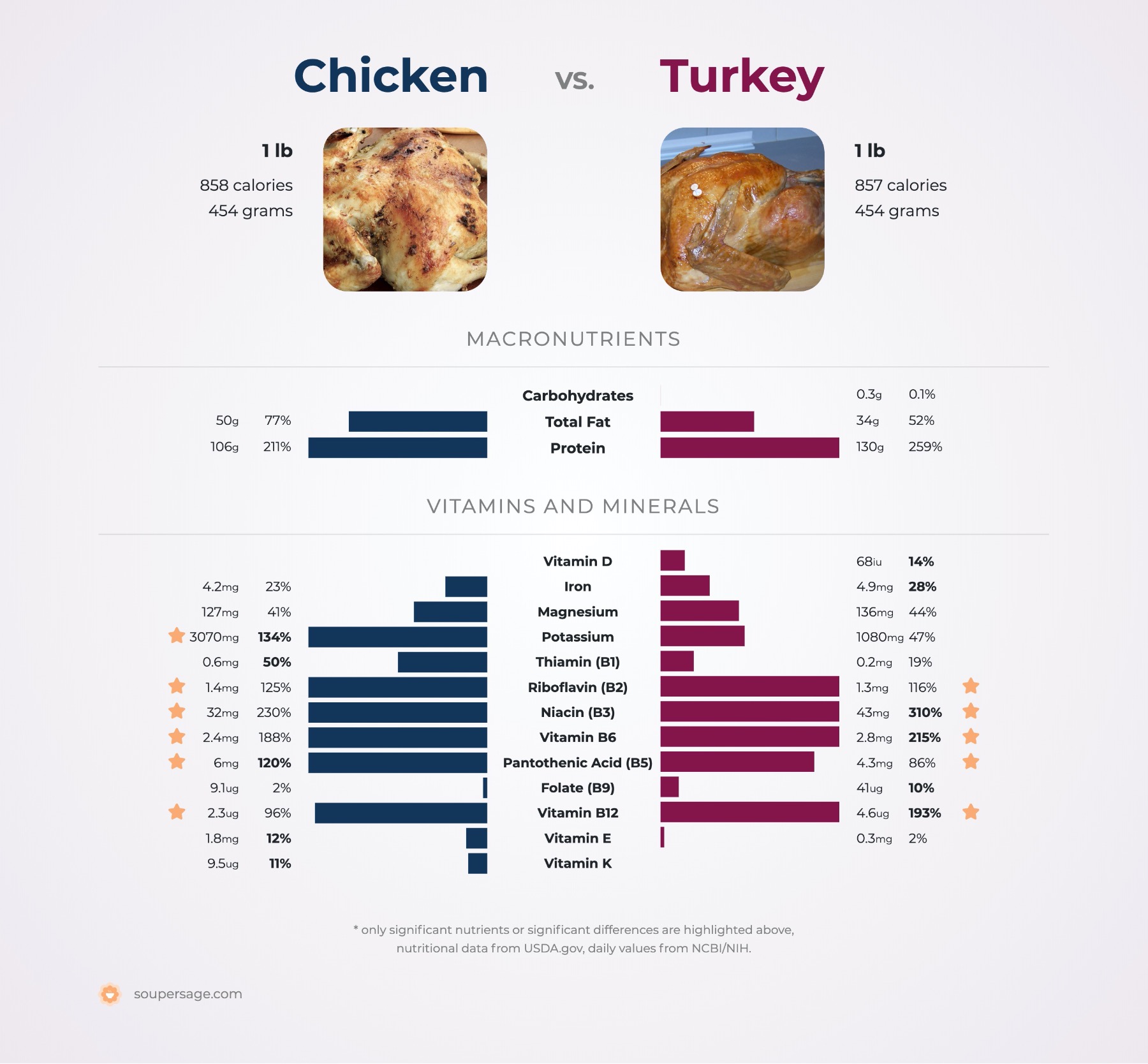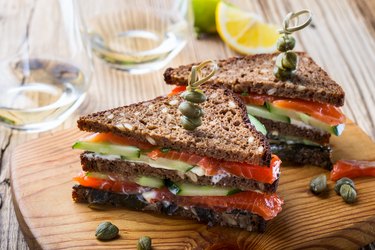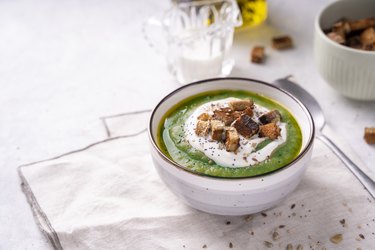Effective bodybuilding requires not only the right amount and type of physical activity, but also a proper diet with high protein foods, such as lean meats like turkey and chicken.
Both turkey and chicken are celebrated as nutritious and protein-packed poultry options. But when it comes to choosing between these two birds for your next meal, which provides the bigger protein boost? Let’s break down the protein content in different cuts of turkey versus chicken to find out which reigns supreme.
Protein Content in Turkey vs Chicken
Overall turkey and chicken are both excellent sources of high-quality, complete protein. Here’s how they compare
-
A 3-ounce serving of roasted turkey breast contains around 25 grams of protein, while the same amount of roasted chicken breast provides 27 grams. So chicken breast edges out turkey breast when it comes to protein density.
-
On the flip side, a 3-ounce serving of roasted turkey thigh packs about 22 grams of protein, compared to 21 grams in chicken thigh – so turkey thigh wins by a hair.
-
Other cuts like drumsticks, wings, and ground meat contain very similar amounts of protein in both turkey and chicken.
So while chicken breast is slightly higher in protein than turkey breast, turkey thigh contains a bit more than chicken thigh. For other cuts of meat, the protein content is generally equal.
Why Protein Matters
Protein is crucial for building and repairing tissues and muscle mass. It also boosts satiety to help control hunger and plays a role in important processes like nutrient transport and enzyme and hormone functions.
Both turkey and chicken provide all the essential amino acids your body needs. The protein quality – or bioavailability – of poultry is high, meaning our bodies can efficiently break it down and utilize it.
When it comes to how much protein we need, the recommended dietary allowance (RDA) is 0.8 grams per kilogram of body weight per day. Active individuals or athletes require more – generally 1.2 to 2 grams per kilogram.
A serving of turkey or chicken can provide about 25-30% of the average adult’s daily protein needs. Choosing poultry as part of a balanced diet with other protein sources like fish, eggs, beans, nuts and dairy can easily meet requirements.
Comparing Other Nutrients
Beyond protein, what are some other nutritional differences between turkey and chicken?
-
Turkey is a bit lower in calories and fat overall, especially saturated fat. A 3-ounce serving of roasted turkey breast has around 160 calories and 3 grams of fat, compared to 200 calories and 6 grams of fat for chicken breast.
-
Turkey provides more micronutrients like the B vitamins, zinc, selenium and phosphorus. Chicken contains more vitamin A and vitamin E.
-
Turkey is richer in the amino acids isoleucine and valine, while chicken provides more tryptophan.
-
Chicken contains more omega-6 fatty acids. Turkey has slightly higher levels of omega-3s.
-
Chicken is a better source of choline, an important nutrient for brain, muscle and liver health.
Health Benefits of Turkey and Chicken
Both turkey and chicken offer numerous benefits as part of a healthy diet:
-
They are rich sources of lean protein to support muscle growth and satisfy hunger.
-
They are low in saturated fat and high in polyunsaturated and monounsaturated healthy fats.
-
They provide a variety of vitamins and minerals like niacin, vitamin B6, selenium and phosphorus.
-
They contain all the essential amino acids needed to form complete protein.
-
They are associated with a lower risk of obesity, heart disease and diabetes.
-
Substituting poultry for red meat is linked to a lower risk of certain cancers.
Overall turkey and chicken are incredibly healthy, versatile options that can be prepared in endless tasty ways. Pick your favorite cut or switch between them to reap all the nutritional rewards of these lean, protein-packed birds!
Nutrition Comparison Tables
| Nutrient | 3 oz Turkey Breast | 3 oz Chicken Breast |
|---|---|---|
| Calories | 160 | 200 |
| Protein | 25g | 27g |
| Fat | 3g | 6g |
| Saturated Fat | 1g | 2g |
| Cholesterol | 65mg | 85mg |
| Sodium | 65mg | 70mg |
| Potassium | 210mg | 160mg |
| Iron | 1mg | 1mg |
| Nutrient | 3 oz Turkey Thigh | 3 oz Chicken Thigh |
|---|---|---|
| Calories | 175 | 175 |
| Protein | 22g | 21g |
| Fat | 8g | 9g |
| Saturated Fat | 2g | 3g |
| Cholesterol | 75mg | 85mg |
| Sodium | 65mg | 70mg |
| Potassium | 250mg | 200mg |
| Zinc | 2mg | 1mg |
Tips for Preparing and Cooking
To enjoy the full nutritional benefits of turkey or chicken:
-
Choose lean, skinless cuts like the breast to limit fat and calories. Or remove the skin before eating.
-
Try new cooking methods like roasting, baking, grilling or sautéing in broth or spices instead of frying or breading.
-
Limit processed turkey or chicken meats like cold cuts or sausages which contain more sodium and preservatives.
-
Watch your portions and aim for 3-4 ounce servings to meet protein needs without overdoing calories or saturated fat.
-
Use leftovers within 3-4 days and either refrigerate cooked poultry properly or freeze for longer storage.
-
Pair poultry dishes with veggie sides and whole grains. Add in healthy fats like avocado or olive oil.
-
Season turkey or chicken with fresh herbs, spices, citrus, vinegars and mustard instead of heavy sauces.
The Bottom Line
Both turkey and chicken are rich in high-quality protein. Chicken breast has slightly more protein than turkey breast, but turkey thigh is minimally higher in protein than chicken thigh. The other meat cuts provide equal amounts of protein.
When it comes to other nutrients, turkey tends to be a bit lower in fat and calories while chicken offers more vitamin A and choline. But both provide a great source of complete protein plus a variety of vitamins and minerals.
The preparation method, pairing with other foods and portion size will impact the ultimate nutritional value. Overall, both turkey and chicken can be regular go-tos as delicious protein centerpieces of healthy meals.

Turkey vs. Chicken Nutrition
Video of the Day
Both chicken and turkey can be good sources of lean protein. The Academy of Nutrition and Dietetics explains that the healthiness of chicken or turkey can depend on the way that its cooked. Baking and grilling are considered healthier options, while frying chicken or turkey is less healthy. Moreover, removing chicken or turkey skin will help reduce the fat content.



Video of the Day
In terms of nutrition, turkey meat overall contains fewer calories than chicken. According to the USDA, a 3-ounce serving of a whole cooked chicken has 200 calories and 100 calories from fat, while a 3-ounce serving of a whole turkey has 170 calories, 70 calories from fat and slightly more protein with 24 instead of 23 grams of protein.
Overall, turkey contains fewer calories and moderately more protein than chicken, except for the chicken breast, which has more protein per serving size of 3 ounces. Turkey also has less cholesterol, less sodium and more iron.
Since protein provides amino acids that help in muscle rebuilding and repair, says Mayo Clinic, turkey may be a moderately better option, though it depends on how its prepared and which part of the turkey it comes from. The difference between the chicken and turkey meat, in terms of nutrition is minimal.
Mayo Clinic recommends foods that will fuel a workout, that will provide energy to your muscles and help you recover from physical activity. The most important elements of your diet to fuel your workout are healthy carbs, such as whole-wheat bread and brown rice, lean protein, such as turkey or chicken, which will help you gain and maintain lean muscle tissue and water, which will keep you hydrated.



Mayo Clinic also suggests eating carbohydrate-heavy food one to four hours before exercise and protein-rich foods after your workout to help you restore the glycogen lost in your muscles during the workout. Geisinger Health advises having a lean protein and carbohydrate, such as lean turkey or chicken on a wrap to help build your muscles for the next workout.
Other high protein foods suggested by Mayo Clinic as a post-workout snack include string cheese with an apple, a fruit smoothie made with Greek yogurt, low-fat chocolate milk or tuna on a whole-grain wrap.
Read more: How to Cook a Small Turkey
Protein In Different Meats Per 100g | Which Meat Has The Most Amount Of Protein
FAQ
Is turkey or chicken better for protein?
Is turkey good for building muscle?
What meat has more protein than turkey?
What meat has more protein?
|
Food
|
Protein per 100 g
|
Calories per 100g
|
|
1. Chicken
|
32.8 g
|
148 cal
|
|
2. Beef
|
26.4 g
|
163 cal
|
|
3. Pork (loin)
|
22.2 g
|
131 cal
|
|
4. Duck
|
19.3 g
|
133 cal
|
